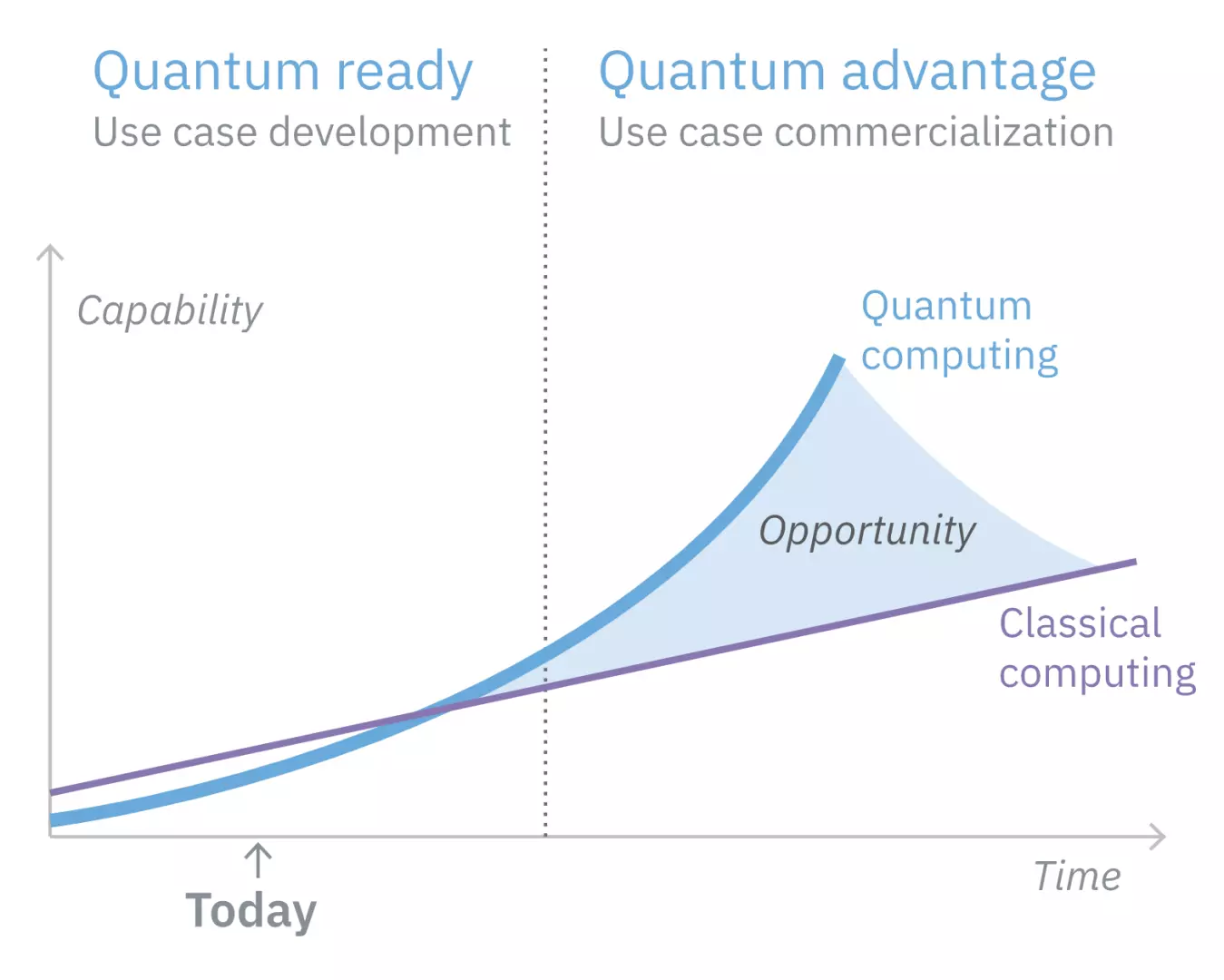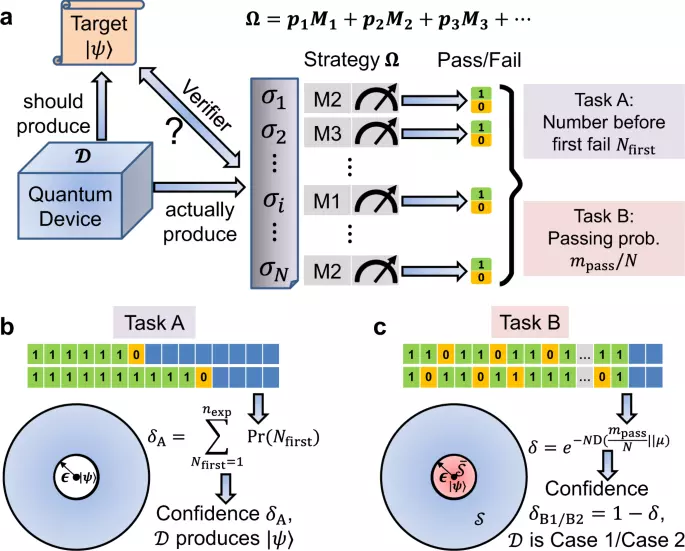Comments
- No comments found

Quantum advantage is the next stepping stone in the post pandemic business world.

Quantum computing is already part of the digital portfolio for companies with a state of the art digital transformation strategy and that wish to be leaders in a future quantum computing global ecosystem.
It should also be on the agenda for those that wish to remain competitive in the digital era.
Some of the major challenges for a faster adoption and implementation of quantum technology could be addressed by having a design thinking approach.
The key challenges identified by experts fall within these 3 domains: material science, engineering and quality control. The scientific community is actively working on addressing each of these and advances are being steadily reported.
However, in addition to optimising the technology it would be valuable to also have a highly proactive design thinking approach for the business of quantum. As outlined by the first stage of design thinking we need to empathise with all stakeholders in the quantum ecosystem and carefully define their potential needs or challenges to adoption in order to create a sustainable quantum business model.
By using a cross- and interdisciplinary approach during the ideation phase we could prevent silos and ensure adoption in multiple industries such as engineering, life sciences, travel, finances, logistics etc. Given the massive engineering and operational challenges it would also be more cost efficient and effective to deploy an agile prototyping methodology as per the foundational principles of design thinking. This would allow us to experiment with new materials, improve qubit quality, continuously improve the error correction and reduce interference, as well as optimise the modelling and scaling capabilities.
In addition to addressing the challenges of quantum computing, the design thinking approach could also lead to an accelerated adoption of quantum computing by leveraging all its benefits. Businesses that use design thinking for their business processes can safely test the exponential computing power for specific use cases and gain competitive advantage. By transitioning their innovation projects to using superposition and entanglement they can significantly shorten the time required for their specific business problems.
So what are key elements of success in an optimal quantum strategy?

First, it is imperative to plan 2-4 years in advance as the learning curve is steep for quantum technology. Having the right human capital from a quantum and design thinking skills perspective, as well as a sustainable long term training and talent management program is crucial.
Second, the team has to select the adequate quantum computer for the problem to be solved as there is a major variability in models like we have experienced with classical computers.
Third, the organisation has to identify the business use cases that best align with their overall enterprise strategy.
So what are some of the potential use cases in various industries? Here are a few of my favourites:
Optimization of simulation capabilities for life sciences R&D
Optimization of efficiency in air travel, financial services, and supply chain management
Optimization or augmentation of AI tools
In closing, the quantum revolution is at our door steps and organisations with strong innovative cultures are already actively engaged in planning for a quantum future. Design thinking can be a highly useful tool in the portfolio of those forward looking companies.
Ingrid Vasiliu-Feltes, MD MBA Is a healthcare executive, futurist and globalist who is highly dedicated to digital and ethics advocacy. She is a Forbes Business Council member, digital strategist, passionate educator and entrepreneurship ecosystem builder, known as an expert speaker, board advisor and consultant. Throughout her career she has received several awards for excellence in research, teaching or leadership. She is the recipient of numerous awards most notably: WBAF World Excellence AwardSocial Entrepreneurship 2021, Top 20 Global Leaders in Digital Twins Technologies, Top 50 Global Leaders in Health Tech,Top 50 Global Ecosystem Leaders, Top 100 Visionary In Education Award 2021, Top 100 Global Women in Leadership Award 2021, Top 100 World Women Vision Award, 2021-Innovation & Tech, Top 100 Women in Social Enterprise 2021 (nominee),Top 50 Global Thinkers (Nominee),Nations of Women Change Makers Award(finalist),Top 100 Healthcare Leader 2020 Award, Top 100 Finance Leader 2020 Award, and Top 100 Women in Crypto 2020. Additionally, she serves as an Expert Advisor to the EU Blockchain Observatory Forum, and was appointed to the Board of UN Legal and Economic Empowerment Network. Dr. Vasiliu-Feltes is CEO of Softhread Inc., the Founder and CEO of The Science, Entrepreneurship and Investments Institute, and currently serving as a Country Director for WBAF USA, Senator of WBAF, Faculty Member of the WBAF Business School-Division of Entrepreneurship, and teaching the Executive MBA Business Technology Course at the UM Business School. She is also acting as the Chief Innovation Officer for the Government Blockchain Association. Most recently she served as President of Detect Genomix, Chief Quality and Safety Officer Chief and Innovation Officer for Mednax, Chief Quality and Safety Officer and Chief of Compliance for the University of Miami UHealth System During her academic tenure she taught several courses within the Medical School, as well as the combined MD/PhD and MD/MPH programs. Throughout her career, Dr. Vasiliu-Feltes held several leadership positions and is a member of numerous prestigious professional organizations. She holds several certifications, such as Bioethics from Harvard, Artificial Intelligence and Business Strategy from MIT Sloan, Blockchain Technology and Business Innovation from MIT Sloan, Finance from Harvard Business School, Negotiation from Harvard Law School, Innovation and Entrepreneurship from Stanford Graduate School of Business, Certified Professional in Healthcare Risk Management, Fellow of the American College of Healthcare Executives, Patient Safety Officer by the International Board Federation of Safety Managers, Master Black Belt in Lean and Six Sigma Management, Professional in Healthcare Quality by the National Association of Healthcare Quality, Manager for Quality and Organizational Excellence, by the American Society for Quality, and Certified Risk Management Professional by the American Society for Healthcare Risk Management. Additionally, Dr. Vasiliu-Feltes is an Honorary Advisory Board Member of several companies, as well as an Editorial Board Member for several international publications, an author and TV/Media partner.
Leave your comments
Post comment as a guest